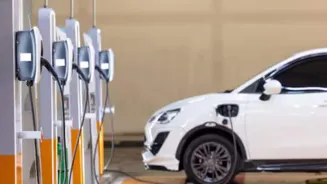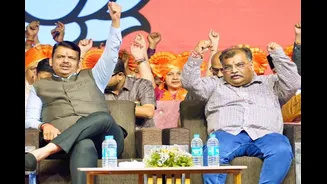The electric vehicle (EV) story in India is gathering speed, and the numbers now show a decisive shift. A recent report from Tata Motors highlights that the public charging network has grown more than
fourfold between 2023 and 2025, expanding from 5,500 stations to over 23,000.
The expansion, driven by the Centre and state governments in collaboration with automakers, added more than 18,000 new public chargers in just 15 months. The report calls this one of the fastest infrastructure build-ups in the country’s transport sector.
Charging Along Highways
EV users now have fewer reasons to worry about long-distance trips. According to the report, 91% of national highways feature a fast charger within 50 km. Several states and union territories, including Karnataka, Haryana, Delhi, Kerala, Bihar, Goa, Punjab, and even smaller regions like Tripura, Sikkim, and Chandigarh, have achieved 100% fast-charger coverage on national highways.
Perhaps most telling for the industry’s sustainability is that the top 25% of charging stations are already operating profitably, indicating commercial viability beyond government support.
Consumers Overcoming ‘Range Anxiety’
The infrastructure boom has gone hand-in-hand with a change in consumer behaviour. In July 2025, 35% of Tata EV users reported using a fast charger at least once a month, up from 21% in 2023. About 77% of Tata EV owners have undertaken trips that required public charging, and half of them have completed journeys exceeding 500 km.
The report notes that around 14,000 EV owners rely primarily on public charging networks, a figure seen as a marker of growing confidence in the still-young EV ecosystem.
Sales and Adoption Trends
Consumer trust has translated into wider adoption. Today, 65% of Indian pin codes have at least one registered EV. More importantly, EVs are no longer viewed as secondary cars. By 2025, 84% of owners considered their EV their primary vehicle, compared with 74% two years ago.
Industry experts say this behavioural shift, coupled with rapidly improving infrastructure, is helping India close the gap with global EV adoption trends faster than expected.
















